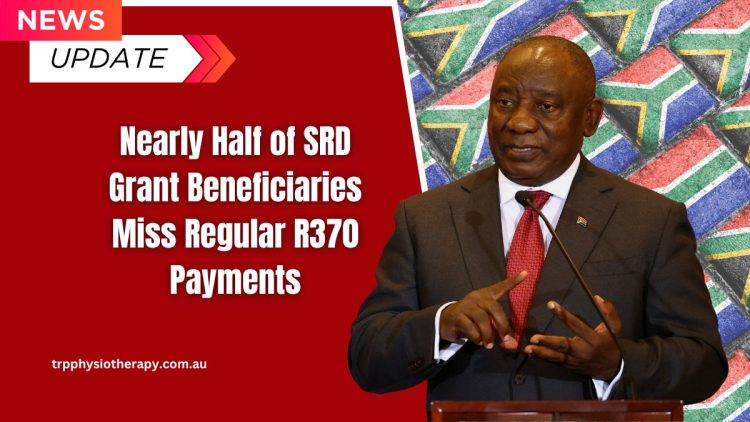A significant number of South Africans who were approved for the Covid-19 grant have reported inconsistent payments. According to a recent study by the Institute of Economic Justice (IEJ), nearly 50% of beneficiaries do not receive payments on time.
The study, conducted across various provinces, found that many eligible individuals were either unaware of how to apply or faced barriers in accessing the Social Relief of Distress (SRD) grant.
These issues were linked to a range of factors, including a flawed application process, the complex eligibility criteria, and limited access to smartphones for digital applications.
Key Findings of the IEJ Study
In a sample of over 1,000 participants, the study revealed several challenges:
- Regular Payment Issues: About 44.5% of beneficiaries faced irregular payments, mainly due to banking and administrative problems.
- Lack of Awareness: Many individuals, even those eligible for the grant, did not know how to apply or mistakenly thought they did not qualify.
- Excluded Due to Digital Barriers: Rural communities, people without smartphones, and those facing language and educational barriers were the hardest hit by the digital-only application process.
Distribution of Payment Issues and Barriers
| Issue | Percentage Affected |
|---|---|
| Irregular Payments | 44.5% |
| Lack of Awareness | 25% |
| Digital Access Barriers | Affected rural areas |
Eligibility Issues and the Application Process
The IEJ report indicates that around 18 million people are eligible for the SRD grant, yet only 8 million have been approved since the new qualification criteria were introduced in April 2022.
A significant portion, 25%, believed they did not meet the criteria due to misleading application questions. The application process, as governed by the South African Social Security Agency (SASSA), has been criticized for being potentially deceptive.
According to Kelle Howson, a senior researcher at IEJ, many applicants were confused by the questions that suggested they had a means of support when, in reality, they did not. The report pointed out that the eligibility tests failed to consider rising inflation and did not account for those living below the food poverty line despite earning above the threshold.
The Impact of the Digital Divide
One of the most pressing concerns raised by the study is the digital divide. The grant’s application process is heavily digital, requiring access to a smartphone and internet services, which many disadvantaged individuals lack. This has resulted in the exclusion of a large portion of the population, particularly migrants and those from remote areas.
Additionally, applicants who earn just above the means-test threshold, but below the food poverty line, have found themselves ineligible for support. These individuals face significant financial hardship but are not considered eligible under current rules.
Unfair Rejections and Appeals Process
The IEJ report also revealed that 80% of rejection decisions were based on alternative income sources identified by SASSA. These sources often included child maintenance, loans, or once-off donations, which were wrongly categorized as means. This error led to the rejection of many valid claims.
Moreover, the appeals process has proven to be ineffective, with only 5.3% of appeals resulting in a favorable outcome. Most of the appeals were denied, as SASSA simply conducted an automated recheck rather than reconsidering the case with new evidence.
Case Study: Samuel Ndlama’s Struggle
Samuel Ndlama, a refugee from Zimbabwe, applied for the Covid-19 SRD grant in the hope of receiving much-needed financial assistance during the pandemic.
Despite his claims of not having a steady income, SASSA rejected his application, citing an alleged alternative income source, which he denied. He appealed, but his appeal was rejected, leaving him frustrated and without support.
Recommendations for Policy Change
The IEJ has recommended several policy changes to address the issues raised by their research:
- Clearer Communication: Regular, transparent updates on the application process and eligibility criteria.
- Non-Digital Options: Provide alternative application methods for those without access to smartphones.
- End Bank Surveillance: Stop using bank transactions as an automatic means of disqualifying applicants.
The findings of the IEJ study emphasize the pressing need for reform in how the Covid-19 relief grants are administered. The current process not only fails to reach those most in need but also creates unnecessary barriers for eligible individuals.
Without clear communication, a more inclusive application system, and a fairer appeals process, the relief intended to support South Africans during a difficult period will continue to exclude many of the vulnerable.
FAQs
What percentage of beneficiaries did not receive payments regularly?
44.5% of the grant recipients experienced irregular payments due to banking and administrative issues.
Why are some eligible individuals excluded from the grant?
Lack of awareness, misleading eligibility questions, and limited access to digital technology have led to many eligible individuals being excluded.
What is the issue with the appeals process?
The appeals process has a low success rate, with only 5.3% of appeals being successful, indicating that it lacks proper reconsideration and relies on automated checks.

